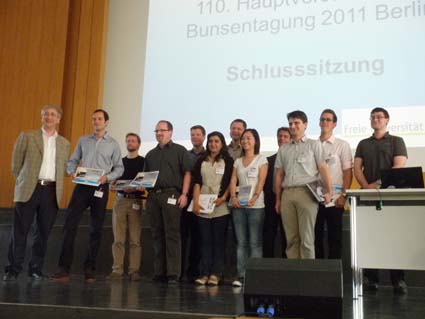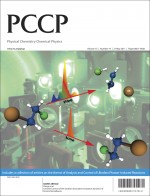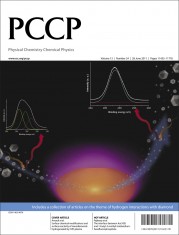PCCP themed issue:
Fragment and Localized Orbital Methods in Electronic Structure Theory
Guest Editors:
Gregory Beran (University of California at Riverside)
So Hirata (University of Illinois at Urbana-Champaign)
PCCP is delighted to announce the high-profile themed issue ‘Fragment and Localized Orbital Methods in Electronic Structure Theory’. It is our pleasure to invite you to submit to this themed issue.
The themed issue will be published in PCCP in 2012 and will be displayed at relevant international conferences in summer 2012 to maximise the visibility of the work published.
Deadline for Submissions: 28 November 2011
With broad and increasing interest in condensed-phase chemistry and physics, the past few years have seen remarkable progress in the development and application of new, accurate electronic structure methods that are applicable to chemistry in solution, molecular crystals, and biological systems. These achievements stem from both the development of new approaches for handling the large length-scales inherent in such systems (e.g. divide-and-conquer schemes and local correlation methods) and on new physical insights and algorithms that reduce the steep computational cost of calculating the important physical interactions accurately (e.g. symmetry-adapted perturbation theory). The combination of these approaches is effecting a rapid scientific transformation in which accurate quantum chemistry predictions are becoming feasible for complex systems.
By gathering works from these different areas, this themed issue will serve as a focal point that will highlight the tremendous progress that has been made and will help foster new ideas for future advances. The issue plans to cover both the latest methodological advances in the area and state-of-the-art applications to molecular crystals, proteins, nanomaterials, molecular excited states in solutions, and much more.
Manuscripts can be submitted in any reasonable format using our online submissions service. Submissions should be high quality manuscripts of original, unpublished research. Please indicate upon submission that your manuscript is intended for this themed issue.
Submit to this themed issue
















